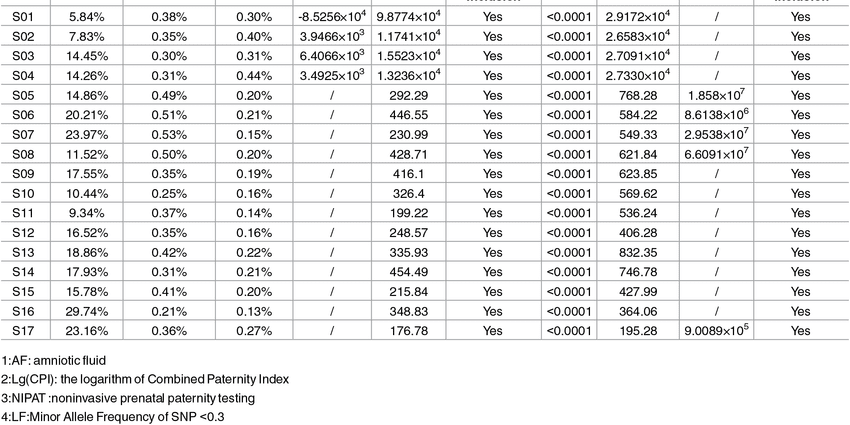Contents
All about the paternity test
Several situations can justify the interest of proving parentage between a father and his child, and therefore the use of a paternity test. But in France, this approach is strictly framed by law. Who can perform this test? In which cases? In which laboratories? On the Internet ? Are the results reliable? The answers to all your questions about the paternity test.
According to a British study carried out in 2005 and published in the Journal of Epidemiology and Community Health, one in 25 fathers would not be the biological father of his child. Fathers therefore have reason to wonder about the correctness of the biological link which unites them to their offspring. Other cases (single mother wishing to request the help of the biological father to raise a child, presumed father wishing to prove that he is not the legal guardian of the child) justify the need to scientifically verify filiation ties. However, the paternity test is not an approach to be taken lightly since it is part of a strict legal procedure.
The paternity test to establish or contest a parentage link
It is therefore used to establish or contest a parentage link between an alleged father and his child. The paternity search then makes it possible to rule on the conditions for the exercise of parental authority, the father’s contribution to the maintenance and education of the child, the attribution of the father’s name. The paternity test can also allow to obtain or remove human “subsidies” who had an intimate relationship with the mother at the time of conception of the child. That is to say a food pension paid to a child whose father has not recognized the filiation. In this case, the mother or the child (at his majority) can be at the origin of this request.
The presumed biological father must be consenting
The approach corresponds well to legal proceedings. Concretely, the lawyer (of the mother or the father) must seize the High Court. The alleged father must be consenting. This results in a written statement. Outside of this framework, the paternity test is strictly illegal. Note: if the alleged father refuses to take the test without justifying himself, this can be considered as an admission of paternity by the judge. Note also: the law prohibits the use of a test to establish or contest a filiation in the case of medically assisted procreation (MAP) with a third party donor, since in this case the genetic filiation does not correspond to the legal affiliation.
DNA tests to establish paternity
Father presumed, mother and child must undergo DNA tests, in other words be identified by their genetic fingerprints. In France, these tests must be carried out in approved laboratories. Most often, technicians take saliva samples (collected by rubbing the inside of the cheek). The tests can also be done by blood samples. Experts compare the genetic markers (a kind of “bar code”) of the three individuals to establish or not the paternity. The method is reliable over 99% and the results are known within hours.
Internet paternity tests illegal in France
Laboratories foreign (especially in Spain) are increasing the number of paternity testing services to be carried out via the web. In exchange for sending DNA samples (saliva, hair, fingernail, skin) by post and a few hundred euros (from around 150 euros), the sites promise reliable results in “all discretion” . This means that the tests can be done without the knowledge of the people concerned! These laboratories are obviously not approved by French law. Even if their results were certain (and there is no way to verify this), they could not serve as evidence for legal recognition of parentage or for its contestation. Their use in legal proceedings could even backfire on the plaintiffs! Nevertheless, more and more tests are carried out in this way, in particular by women or men who wish to obtain information before starting a longer legal procedure, or by people (mother, father or child) anxious to hold a scientific truth concerning their family history. Proof of this frantic search for truth, in the United States, a bus “Who’s your Daddy? Carrying out express paternity tests even runs on the streets of New York. It should be noted that paternity tests carried out without the consent of the interested parties may be subject to a penalty of one year in prison or a fine of 15 euros. And that customs can confiscate DNA sample shipments. Not to mention the impact that the results of these tests, which are not governed by the law, can have on applicants’ emotional balance and the stability of the family structure …
A prenatal paternity test from the 9th week of pregnancy?
Some foreign laboratories now offer a prenatal paternity test to be performed from the 9th week of pregnancy. It is performed by taking a blood sample from the mother, which contains fetal DNA. It costs more than 1200 euros and is also illegal in France. Genetic tests performed on the fetus are only authorized in France in the event of termination of pregnancy.










